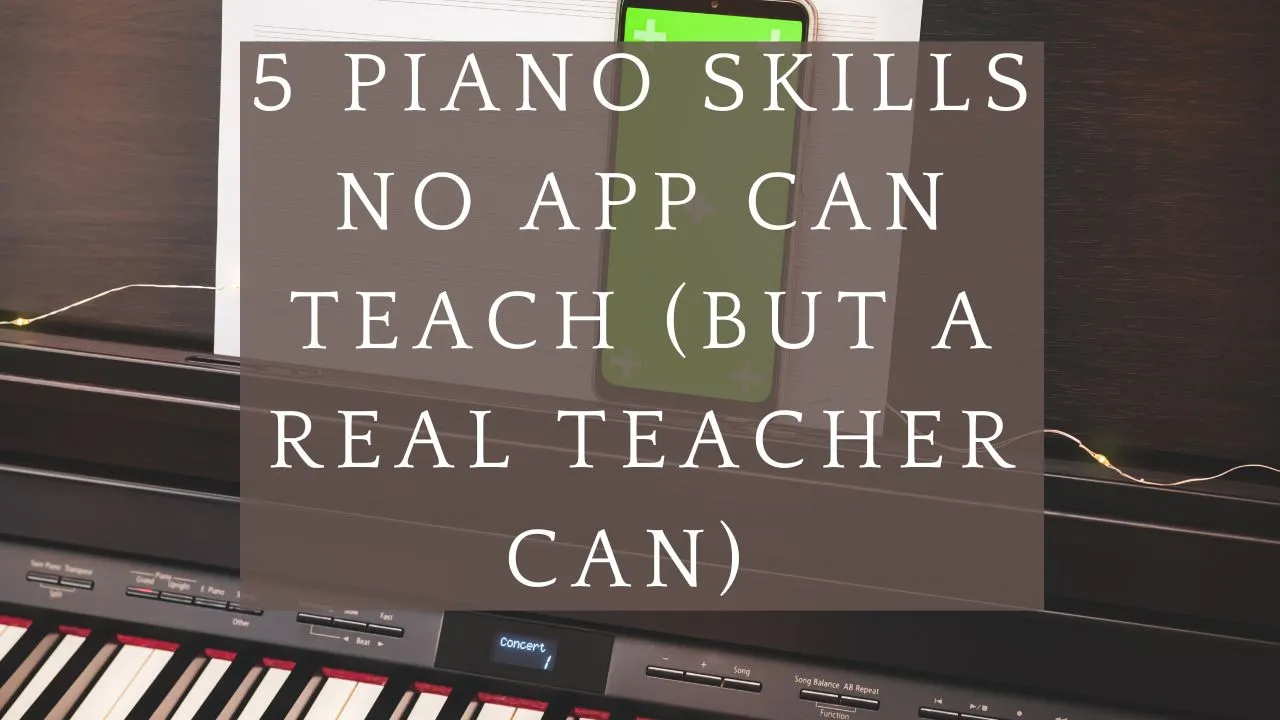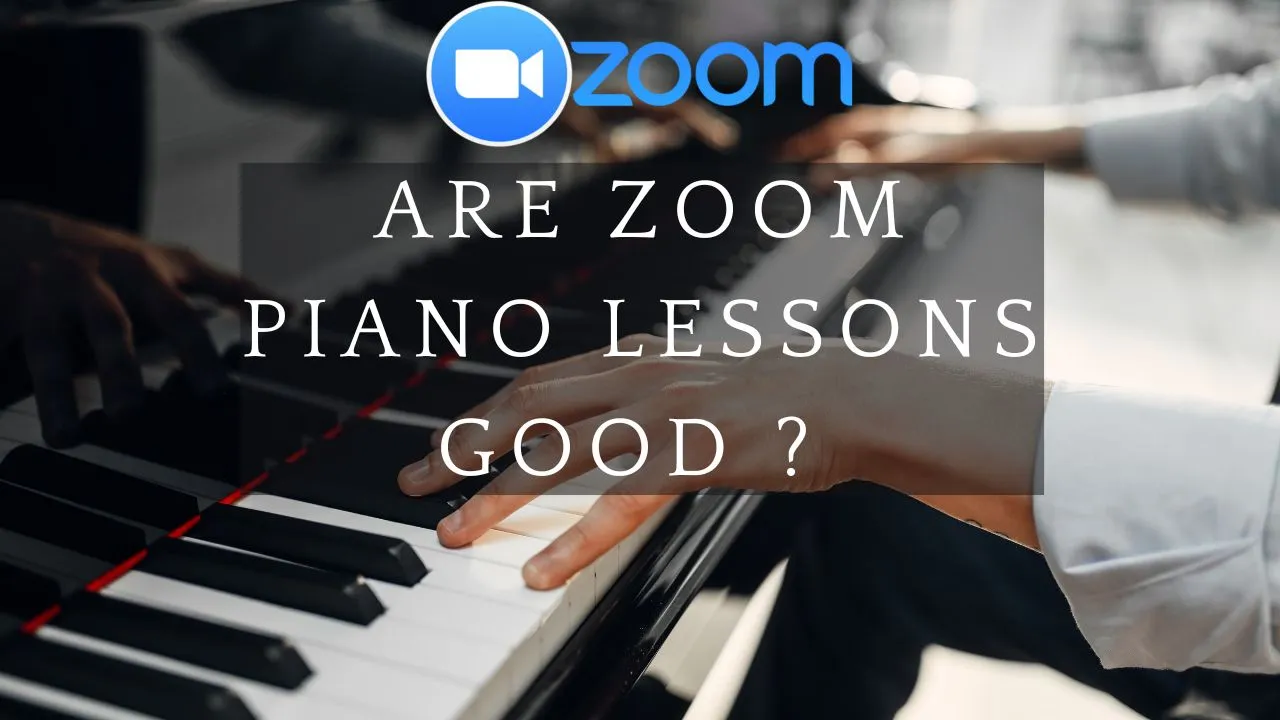As a piano teacher who’s worked with hundreds of students, I often get asked, “Are 30-minute piano lessons enough?”
It’s a fair question for any beginner or busy parent to wonder about. Short, half-hour lessons can seem too brief when there’s so much to cover, but they also have real advantages.
In this guide I’ll share my experience and research-backed insights. Whether you’re signing a child up for lessons or trying to fit piano into a packed week, I’ll help you decide if 30 minutes per session can get real results.
The Case for 30-Minute Lessons
Thirty-minute lessons often hit the sweet spot for beginners. Kids and adults alike can focus effectively for a half-hour, especially when the time is well organised.
Short lessons fit into hectic schedules and usually cost less, making music lessons more accessible. In fact, short, focused lessons combined with daily practice can actually boost retention and motivation.
When teaching younger children, I’ve found 30 minutes is perfect for building basics like posture, hand shape and coordination without overwhelming them.
Young Learners (5–12 years)
For most primary-aged children, 30 minutes is ideal. This matches their attention span and energy, so they stay engaged. During a half-hour lesson, a child can learn correct posture, some scales and arpeggios, sight-reading and work on at least one piece of music. That foundational work is crucial to avoid bad habits.
Many other teachers also agree that 30 minutes is the perfect duration if the student is between 5 and 12 years old. In practical terms, this means students cover the piano basics and start having fun with music without feeling rushed or bored. In fact, most of my young students start with 30-minute lessons, which builds their confidence as they master small pieces week by week.
Busy Adults and Beginner Teens
Adults juggling work, family or studies often only have short bursts of time to practise, and that’s OK. Adults often find 30-minute lessons manageable because they fit neatly into a busy routine.
A well-structured 30-minute session might include a quick warm-up, one or two focused exercises, and setting clear goals to work on at home.
In my studio, I treat a 30-minute adult lesson much like a shorter child’s lesson: I zero in on the essentials and keep a brisk pace. Many adult beginners do very well this way, and it doesn’t feel like a chore. If someone has specific goals (say, preparing for an exam or tackling a particular piece), they might later choose a longer lesson (45 or 60 minutes), but half an hour is a great way to get started.
Daily practice is key. In my experience, the lesson itself is mostly a check-in. If a student practises even 10–15 minutes each day, they’ll make steady gains. Short, daily practice beats one long cramming session. If students apply the 80/20 rule in their practice, they can achieve a great deal in a small amount of time.
Structured time. I divide a half-hour lesson into segments: for example, 5 minutes of warm-up (posture and scales), 10 minutes on the current piece, a few minutes on theory or sight-reading, and 5 minutes to set practice goals.
Repertoire pace. With 30-minute lessons, new pieces can accumulate a bit more slowly with students often learning only 1–2 new pieces per month, compared to 3–5 pieces in a one hour lesson.
Boosts confidence. Short lessons often let students complete one small piece or exercise during class, giving them a quick win. Those early successes keep motivation high and make the student eager to return.
Many adult beginners start with 30-minute lessons and do very well. If an adult has a clear goal—like preparing for grade exams or doing a music diploma—I might suggest starting with 45 or 60 minutes right away. Otherwise, starting with 30 minutes is a low-risk choice. The key, no matter what, is consistency.
Yes — 30 Minutes Can Make a Difference!
Worried that 30 minutes won’t be enough? You’d be surprised what a well-structured lesson can do.
My online piano lessons are designed to make every minute count — perfect for beginners, busy adults, or parents looking for solid progress without overwhelm.
What You Can Achieve in 30 Minutes
A well-planned 30-minute lesson can cover a lot of ground. Here’s an example of how I break it down:
Technique/Exercises (7–8 minutes): Scales, arpeggios or drills to build strength and agility.
Repertoire (15–17 minutes): Learning or polishing pieces.
Theory/Sight-Reading (5 minutes): A quick tip or explanation integrated into the music.
Practice Plan (3–5 minutes): Setting clear goals for the week.
| Student Stage | Lesson Length | Notes/Benefits |
|---|---|---|
| Children (5–12 years) | 30 minutes | Suits short attention spans; teaches fundamentals & simple pieces. |
| Teens (13+ beginners) | 45 minutes | Extra time for theory and pieces; fits growing stamina. |
| Adults (beginners) | 30–45 minutes | 30 min for a gentle start; 45 if more content is needed. |
| Advanced/Exam Students | 60 minutes | Required for ABRSM Grade 5+ and diploma prep; in-depth work. |
This matches my own experience. Most young beginners start with 30-minute lessons and then gradually move up. For instance, I’ve had many children progress through early ABRSM grades on a weekly half‑hour session, and then increase to 45 minutes around Grade 5+.
One student who really made the most of 30-minute lessons is Tom. He stuck with half-hour sessions all the way up to Grade 7, making steady progress year after year.
When we bumped his lessons up to 45 minutes, we suddenly had space to dive into the finer details—phrasing, tone, interpretation—and it really showed. Tom went on to earn a distinction in his Grade 8 exam, a brilliant achievement. Here he is performing Beethoven’s Sonata No. 25 in G major, Op. 79.
When 30 Minutes Isn’t Enough
As students advance, 30 minutes can feel too short. Teenagers and serious learners often do better with longer sessions. If you or your child are tackling complex pieces or preparing for exams, you’ll likely want more time.
Complex repertoire & exams: Half an hour may only scratch the surface of a challenging piece. Longer lessons allow us to really dive into the musical details such as phrasing, articulation, dynamics and character.
Maturing learners: As kids get older or adults improve, attention spans and goals expand. For students aged 13+. 45 minutes may be more ideal.
Learning goals: Fast progress or exam preparation benefits from extra coaching time. You can warm up, improve technique, learn a new piece, and discuss theory—all in one go.
Some teachers even suggest a 40-minute lesson as a happy medium. The Tattooed Piano Teacher calls 40-minute lessons a sweet spot—long enough to explore, short enough to stay sharp.
Ultimately, whether 30 minutes is enough comes down to the individual. If you notice progress slowing or practice demands increasing, it might be time to increase the lesson length.
Comparing Lesson Lengths
| Lesson Length | Best For | Advantages |
|---|---|---|
| 30 minutes | Young beginners; casual adults | Short and focused; affordable; fits schedules. |
| 45 minutes | Teen learners; intermediate | More time for multiple pieces or review. |
| 60 minutes | Advanced students; exam prep | In-depth work on technique, repertoire and theory. |
These categories are flexible. A 30-minute lesson might be perfect one year and feel too short the next. The key is matching the length to the learner’s needs.
Making the Most of a 30-Minute Lesson
If you stick with half-hour lessons, use every minute well:
Prepare before class: Review pieces beforehand to maximise lesson time.
Prioritise focus: Tackle the hardest part first.
Follow a practice plan: I always assign specific tasks for the week.
Use technology: Apps and recordings extend learning.
Keep it varied: Mix technical work with enjoyable pieces.
Record progress: Journals or videos show improvement over time.
With this approach, 30-minute lessons become highly productive. Many of my students taking ABRSM exams stick with half-hour lessons well into the intermediate levels.
Conclusion
So, are 30-minute piano lessons enough? For most young beginners and casual adult learners, yes—they provide the right blend of structure and focus. But for more serious study, or as skills grow, longer lessons usually bring better results.
Starting with 30 minutes is a smart, low-pressure choice. If you’re still not sure, begin with that and adjust as needed. Two 30-minute lessons per week can also be more effective than one 60-minute cram session.
Every student is different. The most important thing? Consistent practice, clear goals, and a lesson format that fits your life.
FAQS – Are 30-Minute Piano Lessons Enough?
1. Are 30-minute piano lessons enough for beginners?
Absolutely. For beginners—especially younger children—30-minute lessons hit the sweet spot. They offer enough time to cover fundamental skills, build concentration, and maintain enthusiasm without overwhelming the student. Shorter lessons help keep motivation high and attention sharp, setting a solid foundation for future progress.
2. When should students consider longer lessons?
As learners advance beyond the basics, longer sessions often become necessary. Intermediate and advanced students benefit from 45- or 60-minute lessons to dive deeper into technique, musical expression, and more challenging repertoire. Additional time allows for comprehensive work on sight-reading, theory, and nuanced interpretation.
3. Can adults make effective progress with only 30-minute lessons?
That depends on their goals. Casual adult learners who practise consistently at home can certainly make steady progress with 30-minute weekly lessons. However, adults aiming for accelerated improvement or pursuing piano more seriously might find 45 to 60 minutes per lesson better suited to their ambitions.
4. What are the main advantages of shorter lessons?
The biggest perks are focus and affordability. Thirty-minute lessons align well with natural attention spans, preventing fatigue and keeping sessions productive. They’re also easier to fit into busy schedules, making music education more accessible and sustainable financially for many families and individuals.
5. Is there an ideal lesson length that balances focus and depth?
Many instructors recommend 40-minute lessons as a happy medium. This length allows sufficient time for thorough exploration of material without risking student fatigue or loss of concentration. It can be especially useful for students transitioning from beginner to intermediate levels, providing room for both technical work and musicality.





